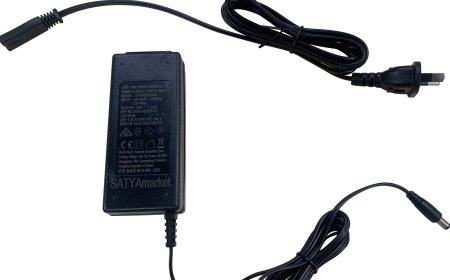How to Book a Private Chef in New Orleans
How to Book a Private Chef in New Orleans New Orleans is a city where food is more than sustenance—it’s culture, history, and celebration distilled into every bite. From the rich, buttery layers of beignets at Café du Monde to the slow-simmered depths of gumbo that tell stories of Creole and Cajun heritage, the culinary soul of this city is unmatched. For visitors and locals alike, experiencing Ne
How to Book a Private Chef in New Orleans
New Orleans is a city where food is more than sustenance—it’s culture, history, and celebration distilled into every bite. From the rich, buttery layers of beignets at Café du Monde to the slow-simmered depths of gumbo that tell stories of Creole and Cajun heritage, the culinary soul of this city is unmatched. For visitors and locals alike, experiencing New Orleans cuisine through a private chef is not just a luxury; it’s an immersive journey into the heart of one of America’s most vibrant food cities.
Booking a private chef in New Orleans allows you to transcend the typical restaurant experience. Whether you’re planning a romantic dinner for two on a moonlit balcony, a family reunion in a historic Garden District home, or a corporate event with authentic local flavors, a private chef brings the city’s culinary traditions directly to your table—customized, intimate, and unforgettable.
This guide walks you through every step of booking a private chef in New Orleans, from understanding what makes these services unique to selecting the right professional, negotiating terms, and ensuring a flawless experience. You’ll learn best practices, discover essential tools, explore real-world examples, and get answers to the most common questions. By the end, you’ll have all the knowledge needed to confidently book a private chef who delivers not just a meal, but a memory.
Step-by-Step Guide
Define Your Purpose and Vision
Before you begin searching for a private chef, clarify your goals. Are you hosting a small, intimate dinner for close friends? Planning a milestone celebration like a wedding anniversary or birthday? Or organizing a corporate team-building event with a local twist? Each scenario requires a different approach.
Ask yourself:
- How many guests will be attending?
- What is the preferred style of dining—family-style platters, plated courses, or a buffet?
- Do you have dietary restrictions or preferences (vegetarian, gluten-free, seafood allergies, etc.)?
- Is this a casual gathering or a formal affair?
- What is your budget range?
Having clear answers helps you communicate effectively with chefs and ensures they can tailor their services to your needs. A chef who specializes in upscale Creole fine dining won’t be the best fit for a backyard crawfish boil with friends, and vice versa.
Research Local Private Chefs
New Orleans has a thriving community of private chefs, many of whom are trained in renowned culinary schools or have worked in the city’s most celebrated restaurants. Start by exploring platforms and directories that specialize in local culinary professionals.
Use search terms like:
- “Private chef New Orleans Creole cuisine”
- “Cajun private dining experience”
- “Custom chef service for events in New Orleans”
Look beyond general food delivery apps. Focus on platforms that highlight chef profiles, client reviews, portfolios, and service areas. Local directories such as LocalEats, New Orleans Food Tours, and Chef’s Table New Orleans are excellent starting points. Many chefs also maintain personal websites showcasing their menus, past events, and testimonials.
Pay attention to:
- Years of experience in private dining
- Specialization in regional cuisines (Creole, Cajun, seafood, vegetarian Cajun, etc.)
- Photos of previous events and plated dishes
- Client feedback mentioning punctuality, cleanliness, and adaptability
Verify Credentials and Licensing
In Louisiana, food service professionals must comply with state health regulations. While not all private chefs operate commercial kitchens, those serving the public must hold a valid Food Manager Certification from the Louisiana Department of Health. Ask for proof of certification before booking.
Additionally, inquire about:
- Liability insurance—essential for events in private homes
- Background checks or references from past clients
- Whether they use a licensed commissary kitchen for food prep (required for many home-based chefs)
Reputable chefs will provide this information without hesitation. If they avoid the question, consider it a red flag.
Review Menus and Customization Options
Private chefs in New Orleans rarely offer one-size-fits-all menus. Instead, they pride themselves on customization. Look for chefs who offer:
- Seasonal menus based on local produce and seafood availability
- Themed experiences (e.g., “Mardi Gras Feast,” “French Quarter Fine Dining,” “Bayou Brunch”)
- Options to incorporate family recipes or cultural traditions
For example, a chef might offer a “Cajun Seafood Boil with a Twist”—featuring Gulf shrimp, crawfish, corn, and potatoes, but with a truffle-infused butter sauce and artisanal cornbread. Or a “Creole Sunday Supper” featuring shrimp étouffée, red beans and rice with andouille, and banana foster for dessert.
Ask if you can schedule a tasting session. Many chefs offer this for larger events or repeat clients. A tasting lets you experience flavor profiles, portion sizes, and presentation before committing.
Confirm Service Scope and Logistics
Private chef services vary widely in what they include. Clarify the following before booking:
- Meal prep location: Will the chef cook on-site, or will food be prepared off-site and delivered? On-site cooking offers a more interactive experience and fresher results.
- Staffing: Does the chef bring servers, bartenders, or dishwashers? Or will you need to provide support staff?
- Equipment: Will they bring their own pots, pans, utensils, and serving ware? Or do you need to provide them?
- Setup and cleanup: Is cleanup included? This is critical—no one wants to host a stunning dinner only to be left with a kitchen full of dishes.
- Timing: What are the arrival, cooking, serving, and departure windows? Ensure they align with your event schedule.
For example, if your event is at 7 p.m., a chef who arrives at 5 p.m. to prep and leaves at 9 p.m. after cleanup is ideal. A chef who arrives at 6:30 p.m. and leaves immediately after serving may leave you with a messy kitchen and no help.
Book in Advance and Secure with a Contract
Top private chefs in New Orleans book up quickly, especially during peak seasons like Mardi Gras, Jazz Fest, and the holiday period. Aim to book at least 4–8 weeks in advance for standard events, and 3–6 months for weddings or large gatherings.
Always formalize your agreement with a written contract. A good contract includes:
- Date, time, and location of the event
- Number of guests
- Finalized menu with allergen notes
- Price breakdown (flat fee, per person, additional service charges)
- Deposit amount and payment schedule
- Cancellation policy
- Contingency plans for weather (for outdoor events)
- Liability and insurance confirmation
Never pay the full amount upfront. A 30–50% deposit is standard. The remainder should be due 48–72 hours before the event.
Prepare Your Space
Even the most experienced chef needs a functional environment to work. Coordinate with your chef to understand their needs:
- Is your kitchen large enough for prep? If not, ask about portable stations.
- Are there adequate power outlets for equipment?
- Do you have enough serving space, refrigeration, and dishwashing capacity?
- Is there a clear path for serving and cleanup?
For outdoor events, confirm if the chef can work under a tent or if they require access to electricity for heating elements. Some chefs bring portable induction burners; others require full kitchen access.
Also, consider ambiance. Lighting, table settings, music, and décor enhance the experience. While the chef handles the food, your role is to create the atmosphere that complements it.
Communicate During the Event
On the day of the event, designate one point of contact—ideally the host—to liaise with the chef. Avoid micromanaging, but be available for minor adjustments.
Common last-minute requests:
- Extra napkins or glassware
- Adjusting spice levels
- Adding a non-alcoholic beverage option
Most chefs appreciate clear, calm communication. A simple “The guests are loving the gumbo—would you be able to serve a little more?” goes further than frantic demands.
Post-Event Follow-Up
After the event, send a thank-you note to your chef. If they exceeded expectations, consider leaving a detailed review on their website or Google Business profile. Word-of-mouth is powerful in New Orleans’ tight-knit culinary community.
If you plan to host again, ask if they offer loyalty discounts or seasonal packages. Many chefs provide reduced rates for repeat clients or off-peak bookings.
Best Practices
Choose a Chef Who Understands Local Ingredients
The magic of New Orleans cuisine lies in its ingredients: Gulf shrimp, crawfish, catfish, Andouille sausage, okra, filé powder, and locally milled rice. A skilled private chef knows which seafood is in season, where to source the best spices from French Market vendors, and how to balance the “holy trinity” of onions, celery, and bell peppers with the right amount of heat.
Avoid chefs who rely on frozen or imported ingredients. Ask where they source their proteins and produce. The best chefs have relationships with local fishermen, farmers’ markets like the French Market or Crescent City Farmers Market, and specialty purveyors like D’Artagnan or Camellia Brand.
Embrace Seasonality
New Orleans cuisine is deeply tied to the calendar. Spring brings fresh asparagus and crawfish boils. Summer is the season for shrimp and crab. Fall features duck and game meats. Winter highlights hearty stews and roasted vegetables.
Ask your chef to design a menu based on the season. A summer event might feature chilled shrimp remoulade and grilled oysters with lemon herb butter. A winter event might include duck gumbo, braised collard greens, and bread pudding with bourbon sauce.
Balance Tradition with Innovation
While authenticity matters, the best private chefs know how to elevate tradition. Look for chefs who honor classic recipes but add thoughtful modern touches: a smoked paprika dust on jambalaya, a bourbon reduction in beignets, or a vegan étouffée made with jackfruit and mushroom broth.
Don’t be afraid to request fusion elements—perhaps a Creole-inspired sushi roll or a Cajun-spiced tiramisu. The goal is to surprise and delight while staying rooted in regional identity.
Plan for Dietary Needs Thoughtfully
Many guests may have dietary restrictions. New Orleans cuisine is often rich in dairy, gluten, and shellfish. A skilled chef can adapt without sacrificing flavor.
For example:
- Gluten-free: Use corn masa instead of flour for roux-based dishes
- Vegetarian: Substitute smoked tofu or portobello mushrooms for andouille in jambalaya
- Seafood allergy: Replace shrimp and crab with chicken or roasted vegetables in gumbo
- Vegan: Create a roux with olive oil and nutritional yeast, and use vegetable stock
Always disclose all restrictions in writing and confirm substitutions with the chef ahead of time.
Consider the Full Experience
A private chef isn’t just a cook—they’re an experience curator. Think beyond the plate:
- Can they recommend local music for background ambiance? (Consider a jazz trio or solo guitarist)
- Do they offer cocktail pairings using local spirits like Sazerac rye or St. George absinthe?
- Can they suggest wine pairings from Louisiana wineries like Chateau de la Salle or Breaux Vineyards?
Some chefs partner with local florists, event designers, or mixologists to offer full-service packages. These partnerships can elevate your event from dinner to an unforgettable evening.
Be Transparent About Budget
Private chef services in New Orleans range from $75 to $250+ per person, depending on experience, menu complexity, and staffing. Be upfront about your budget during initial inquiries.
High-end chefs with Michelin-caliber backgrounds or celebrity clientele may charge premium rates. Mid-tier chefs with 5–10 years of experience offer exceptional value. Budget-friendly options exist for smaller gatherings or simpler menus.
Remember: The cheapest option isn’t always the best. A chef who cuts corners on ingredients or service may cost you more in disappointment.
Book Off-Peak for Better Rates
Peak seasons in New Orleans include Mardi Gras (February–March), Jazz Fest (late April–early May), and the holiday season (November–December). During these times, demand surges and prices rise.
Consider booking during shoulder seasons—January, September, or October—for better availability and lower rates. You’ll also enjoy milder weather and fewer crowds.
Tools and Resources
Online Platforms for Booking
Several platforms specialize in connecting hosts with private chefs in New Orleans:
- Private Chef New Orleans (privatechefnola.com) – A curated directory of vetted chefs with full menus, photos, and booking calendars.
- Thumbtack – Allows you to compare multiple chefs side-by-side, read reviews, and request quotes.
- Peerspace – Useful if you need a venue as well as a chef; some chefs offer their own event spaces.
- Instagram and Facebook – Many chefs maintain active profiles showcasing daily specials, behind-the-scenes prep, and client events. Search hashtags like
NewOrleansPrivateChef or #CreoleChefNOLA.
Local Food Markets for Inspiration
Visit these markets to get ideas for your menu:
- French Market – Historic open-air market with local produce, spices, seafood, and artisanal goods. Great for sourcing inspiration.
- Crescent City Farmers Market – Held on Saturdays in the Bywater. Features local farmers, honey producers, and bakers.
- St. Roch Market – A food hall with vendors offering everything from oysters to vegan po’boys. Perfect for sampling diverse flavors.
Recommended Cookbooks for Menu Ideas
Study these books to better understand the cuisine and communicate your vision:
- “The New Orleans Cookbook” by Richard H. Collin and Sandra H. Collin – The definitive guide to Creole and Cajun classics.
- “Cooking the Creole Way” by Al Copeland – Offers accessible recipes with deep cultural context.
- “The Soul of a New Cuisine” by Marcus Samuelsson – Explores African, Caribbean, and Creole influences in Southern cooking.
Essential Equipment Checklist (for Hosts)
Before your chef arrives, ensure your space has:
- Clear counter space (minimum 8–10 linear feet)
- Working oven, stovetop, and refrigerator
- Access to running water and trash disposal
- Enough seating for guests
- Tableware, glassware, and napkins (if not provided by chef)
- Quiet area for the chef to prep (if hosting outdoors)
Mobile Apps for Event Planning
Use these tools to streamline coordination:
- Google Calendar – Share event details with guests and the chef.
- WhatsApp or Signal – For last-minute communication without phone calls.
- Canva – Design a simple digital menu card to share with guests.
- Yelp or Google Maps – Verify chef reviews and location accuracy.
Real Examples
Example 1: A Romantic Anniversary Dinner
Julie and Mark, celebrating their 10th anniversary, booked Chef Antoine Dubois for a private dinner on their Garden District porch. They wanted something intimate, elegant, and distinctly New Orleans.
Menu:
- Appetizer: Oysters Rockefeller with champagne mignonette
- Main: Duck confit with black-eyed pea succotash, roasted garlic jus
- Dessert: Bread pudding with praline sauce and bourbon whipped cream
Chef Dubois arrived two hours early, set up a candlelit table with fresh magnolia leaves, and played soft jazz from a Bluetooth speaker. He served each course with stories about the dish’s origins. Julie later wrote: “It felt like we were dining in a 1920s French Quarter bistro—except it was just us, under the stars.”
Example 2: A Family Reunion with Cultural Roots
The Johnson family, originally from Lafayette, gathered in New Orleans for a multi-generational reunion. They wanted to honor their Cajun heritage but needed a menu that accommodated children, seniors, and vegans.
They hired Chef Marisol LeBlanc, who specializes in inclusive Cajun cuisine.
Menu:
- Appetizer: Vegan jambalaya (jackfruit, mushrooms, brown rice)
- Main: Shrimp étouffée, chicken and sausage gumbo, grilled catfish
- Side: Red beans and rice, sautéed okra with tomatoes
- Dessert: King cake (gluten-free option available), banana foster
Chef LeBlanc brought her own serving platters and hired two assistants for service. She even created a “Cajun Kids Corner” with mini beignets and crawfish-shaped cookies. The family still talks about it as their best reunion ever.
Example 3: A Corporate Team-Building Event
A tech company from Chicago hosted a team retreat in New Orleans and wanted to give employees a memorable cultural experience. They hired Chef Darnell Jackson, who runs a private dining service focused on community and storytelling.
He designed a “Taste of the Bayou” event: a three-hour immersive experience where guests learned to make roux, shuck oysters, and stir gumbo under Chef Darnell’s guidance.
Each team cooked a small portion of the meal together, then sat down to eat as a group. The event ended with a jazz performance and a toast to collaboration.
One attendee wrote: “I’ve eaten at Michelin-starred restaurants, but this was the first time I felt like I truly understood the soul of the food.”
FAQs
How much does it cost to hire a private chef in New Orleans?
Prices vary based on experience, menu complexity, and group size. On average, expect $75–$150 per person for a 3-course meal with basic service. High-end chefs with fine dining backgrounds may charge $175–$250+ per person. Additional fees may apply for staffing, travel, or specialty ingredients.
Can a private chef cook in my home?
Yes. Most private chefs in New Orleans specialize in in-home dining. They bring their own equipment and handle setup and cleanup. Ensure your kitchen has adequate space, power, and ventilation.
Do private chefs provide alcohol and drinks?
Some chefs offer cocktail pairings or wine recommendations, but they typically do not serve alcohol unless licensed to do so. Many partner with local mixologists or recommend you provide your own beverages. Always check local regulations regarding serving alcohol at private events.
How far in advance should I book?
For standard events, book 4–6 weeks ahead. For holidays, weddings, or large gatherings (15+ guests), book 3–6 months in advance. Top chefs often have waitlists.
Can I request a specific cuisine or fusion dish?
Yes. Private chefs thrive on customization. Whether you want a vegan gumbo, a Creole-Thai fusion, or a dessert inspired by your grandmother’s recipe, most chefs will work with you to create it.
What if it rains during an outdoor event?
Reputable chefs include weather contingency plans in their contracts. This may include moving the event indoors, providing tents, or rescheduling. Always confirm this in writing.
Do private chefs accommodate allergies?
Yes. Most chefs are trained to handle dietary restrictions. Clearly communicate all allergies in your initial consultation and confirm cross-contamination protocols.
Is tipping expected?
Tipping is not required but appreciated, especially if the chef went above and beyond. A 15–20% gratuity is customary for exceptional service.
Can I book a chef for a weekday lunch or brunch?
Absolutely. Many chefs offer weekday services, and you may even receive a discount. Brunch menus featuring shrimp and grits, beignets, and crawfish quiche are popular.
How do I know if a chef is truly authentic?
Authenticity is reflected in ingredient sourcing, technique, and storytelling. Ask where they learned to cook, if they grew up in Louisiana, and how they honor tradition. Look for chefs who speak passionately about their roots—not just those who list “Creole” on their website.
Conclusion
Booking a private chef in New Orleans is more than arranging a meal—it’s an invitation to experience the soul of a city through its food. The rhythms of jazz, the scent of spices, the warmth of hospitality—all are woven into every dish prepared by a skilled local chef. Whether you’re celebrating a milestone, reconnecting with family, or simply craving an extraordinary evening, a private chef transforms the ordinary into the unforgettable.
This guide has equipped you with the tools, steps, and insights to navigate the process confidently. From defining your vision and researching chefs to securing contracts and preparing your space, each step is designed to ensure a seamless, authentic, and deeply personal culinary experience.
Remember: the best private chefs in New Orleans don’t just cook—they tell stories. Your table becomes a stage, and every course, a chapter. So take your time. Ask questions. Trust your instincts. And when the first bite arrives—rich with history, flavor, and heart—you’ll understand why this city’s food isn’t just eaten. It’s cherished.
Now, go ahead. Book your chef. Set the table. And let New Orleans feed your soul.




















